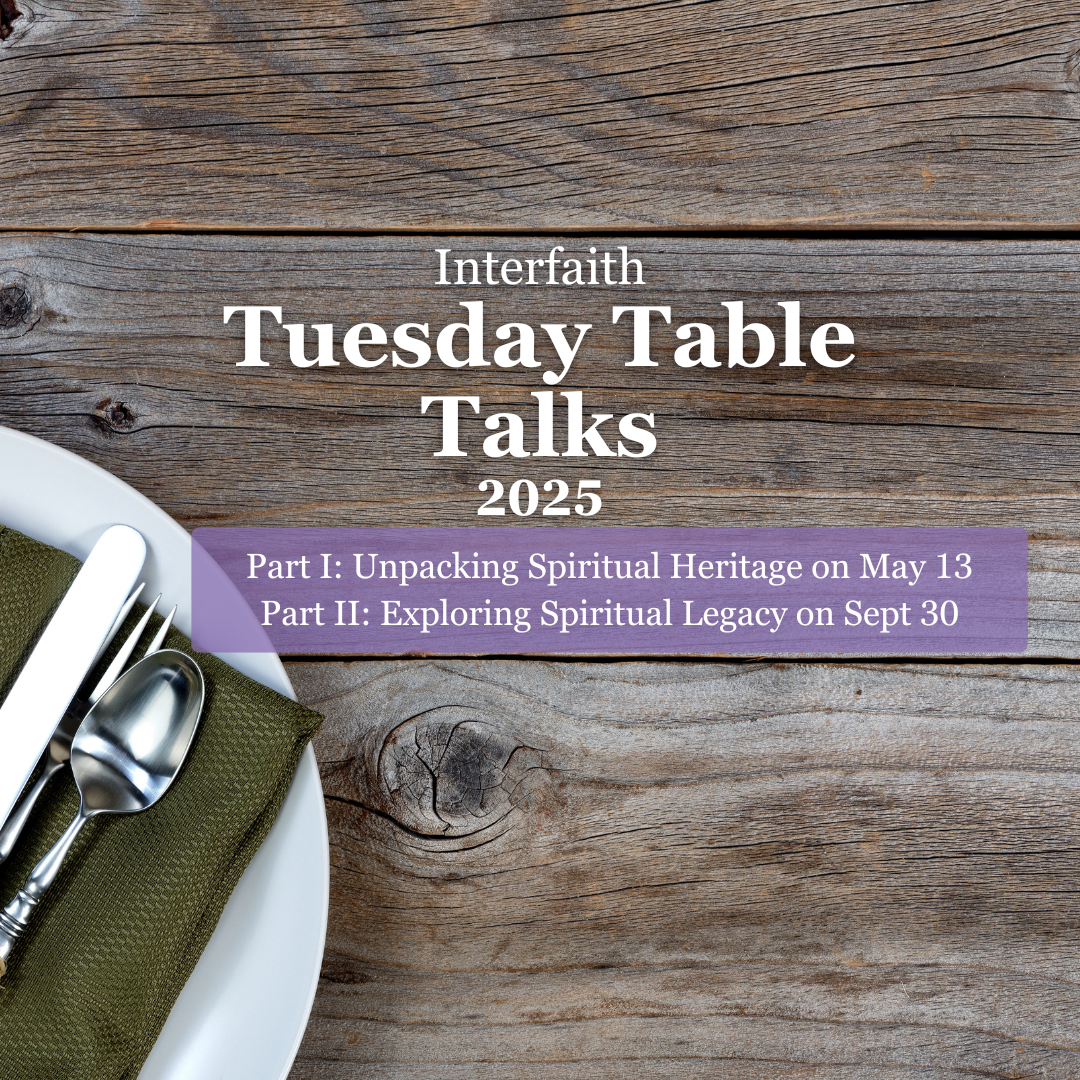
Heritage and Legacy.
These are powerful words. They are words that convey identity, belonging, and worth. They are the culmination of all that has been and will be passed down from one generation to the next. As such, there’s much ado about both of them.
We might think of the pride taken in having a certain family name, long standing traditions that mark a deep sense of belonging, or precious assets that are inherited or bequeathed creating somewhat of a sense of eternal presence or impact. Perhaps, in terms of evolutionary biology, we would be wise to consider our genetic traits, the characteristics that have been passed down to us and that enable us to thrive as beings that are both uniquely and uniformly human. There’s something beautiful in that sacred paradox.
But sacredness also has a heritage and legacy of its own. Just like the handing down of precious heirlooms or the passing on of our eye color, aspects of our ancestors’ spirituality come to us even if we don’t recognize it or identify with “religion” as they did. It forms who we are: the community we call home, the land we belong to, the customs we maintain, the values we uphold, and the way we engage with our neighbor. It’s the generational roadmap and guidebook for being uniquely and uniformly human.
At the 2023 Parliament of the World’s Religions in Chicago, I (Kyle Kooyers) was able to attend a session in which our neighbors from Kalamazoo, the Fetzer Institute, shared about their recent study, “Sharing Spiritual Heritage.’ You can read that report and watch a short video featuring former Kaufman Staff member, Katie Gordon. The report states, “Faith traditions hold historical, familial, geographic, and spiritual lineages. What are the practices being handed down to others? Who are the teachers, elders, and prophets who have held those practices? Lineage is something to be carried from the past to now and on to future generations. The now becomes an intermediary between what has been and what will be.”
Just as we are a wonderful amalgamation of the spiritual traits of our ancestors – beliefs, belonging, behaviors, bodies, the ends we strive for and the persons we seek to become – we are also those responsible for passing on or bequeathing aspects of that sacred kaleidoscope of heritage to our descendants, or the future generations who will inherit our legacy. What do we dream for them? What do we hope for them? What do we pray for them?
As we dwell in the “intermediary of the now,” we have the opportunity to look back at what has been – that which we have inherited for better or worse – with gratitude or with a discerning lens to see perhaps where pruning is needed to allow for future flourishing. To that end, in that same “now,” we have the opportunity to look forward to what will be – to who will be – with hope, wonder, and expectation that our legacy will endow humanity with a greater capacity to love and respect their divine, their neighbor, and their planet.
What is your Spiritual Heritage? What will be your Spiritual Legacy?
What did you inherit? What will you bequeath?
You are invited to join us for a two-part Interfaith Tuesday Table Talk, where we will lean into this conversation of Unpacking Spiritual Heritage and Exploring Spiritual Legacy. The first will be on the evening of May 13, 2025 and the second on the evening September 30, 2025. More information and registration can be found on the page “Interfaith Table Talk: Unpacking Our Spiritual Heritage & Exploring Spiritual Legacy.” Come and hear from intergenerational multifaith voices and share your own as we delve into the past, present, and future of our spirituality over a delicious dinner at Dominican Center Marywood. We hope to see you there!
Written by Kyle Kooyers, Director of Operations, Kaufman Interfaith Institute at Grand Valley State University

